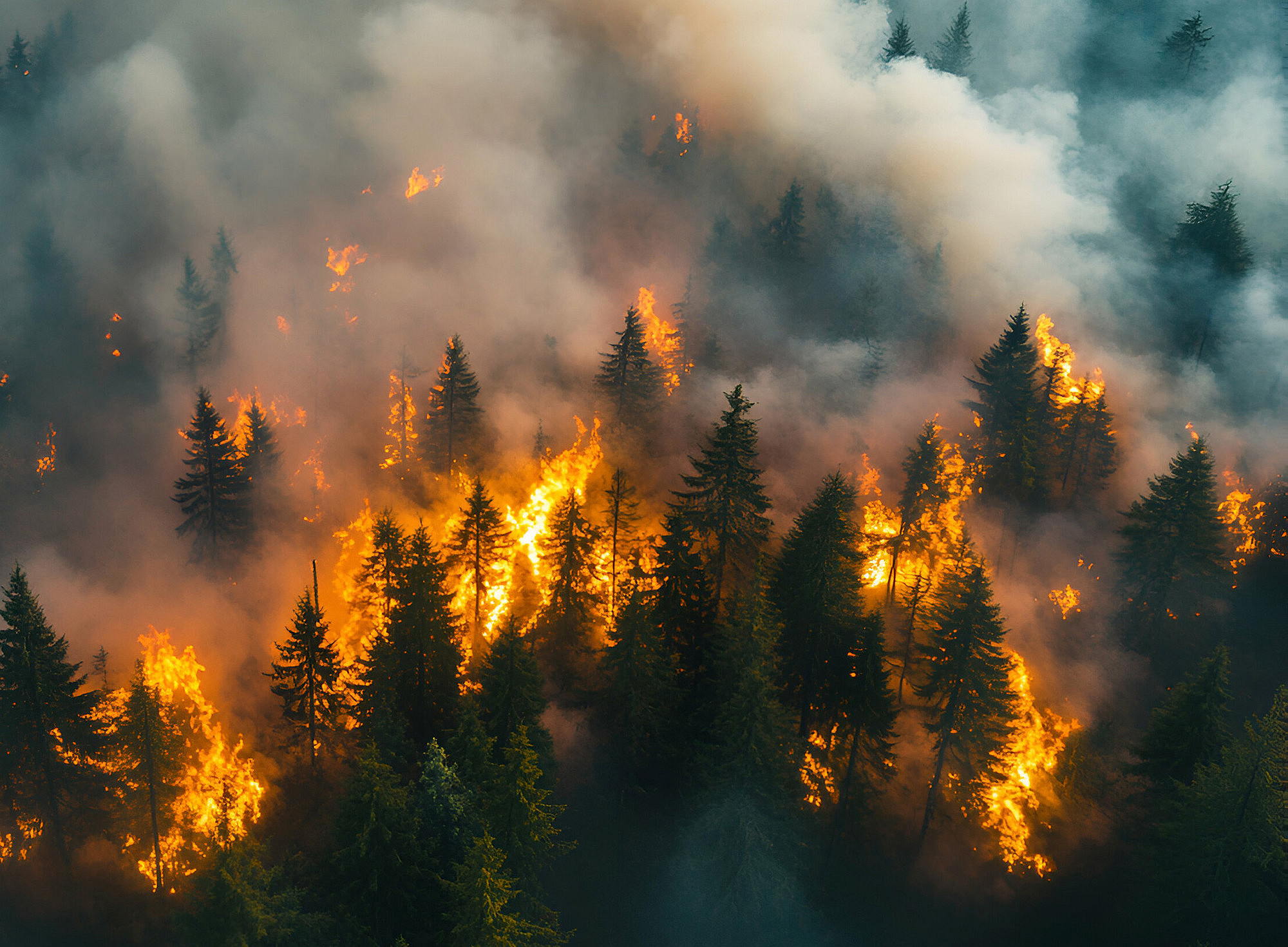“When climate change causes a dry spring to be followed by a hot summer, the risk of forest fires increases,” says Dagmar Henner from the Wegener Center for Climate and Global Change at the University of Graz. In her latest publication, she investigates how the risk and occurrence of such events has changed in Austria, Slovenia, and Slovakia since the 1990s. “Data from the European Forest Fire Information System (EFFIS) show an increase in the frequency and severity of fires. Between 1993 and 2023, a total of over 4,600 forest fires were recorded in Austria. According to EFFIS data, the most dangerous year was 2022, with five such events resulting in around 1,000 hectares of land being burned. We have already reached an affected area of around 430 hectares with two fires in 2025,” reports the lead author of the study. Heavy rainfall, which is becoming more frequent as a result of climate change, cannot effectively reduce the risk. “If the forest soil is very dry, the water does not seep deep enough,” explains the researcher.
In Austria, protective forests on steep slopes are often affected by fires. “This makes it difficult to fight the fires, so they often spread over large areas,” reports Henner. The remaining burnt areas, in turn, increase the risk of landslides and are no longer able to stop debris and snow avalanches. “This study underscores the need for climate action and adaptation measures to safeguard Austria's forests,” says Gottfried Kirchengast, head of the research group and co-author of the publication. “Other risk analyses conducted at the Wegener Center at the University of Graz also confirm that extreme weather events, which are becoming more frequent and intense as a result of climate change, pose an increasing major threat,” Kirchengast continues.
The extent of the damage also depends on the climate zone
In regions of the world accustomed to drought, vegetation is adapted to regular fires. In the Alpine region, however, it cannot recover so quickly. In addition, the forest is already stressed by climate change and therefore more susceptible to pests, which in turn benefit from the higher temperatures. “The bark beetle, which attacks spruce trees, for example, is really benefiting from the warmer winters. The populations are emerging earlier, and there are increasingly two to three generations per year. At the same time, weakened trees are more susceptible to dying from beetle infestation,” explains the researcher. Moreover, their dry condition promotes the ignition and spread of fires.
The comparison with Slovenia in the study showed that Mediterranean vegetation copes better with the changing climatic conditions, which reduces the risk of damage. In Austria, reforestation efforts are already focusing on planting tree species that are better suited to the changing climatic conditions. However, it will take a long time for the protective forest function to be restored. “On the one hand, young trees are more susceptible to dying in dry conditions. On the other hand, the newly planted species often grow more slowly than the spruce that was previously common,” says Henner.
Most forest fires are started by humans, whether through careless use of open fires, discarded cigarettes, car exhaust fumes, or arson. The next most common cause is lightning and storms that cause electricity lines to break down. Clearly, there is still a need to raise awareness among the population about the importance of protecting forests.
Publication
Forest Fire Risk Under Climate Change in Austria and Comparable European Regions
Dagmar N. Henner and Gottfried Kirchengast
https://doi.org/10.1016/j.tfp.2025.100889
The research was co-funded by grants from the Austrian Science Fund FWF and conducted as part of the “Climate Change Graz” field of excellence at the University of Graz.
